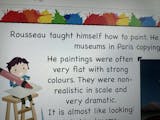#TheCompleteSeries5lessons
Each lesson includes a detailed plan, a set of engaging and informative PDF slides, and a range of printable resources. With these flexible, ready-to-teach resources, you can download the whole scheme, or pick and choose individual lessons to work around your own planning.
Are you looking for KS1 or LKS2 resources for the Olympic Games? We also have schemes for Year 1/2 and Year 3/4!
#Lesson1HistoryTheEvolutionoftheModernOlympics
This lesson will challenge your class to research and discuss how the Modern Olympics have changed since the first Games in 1896. They will discuss and reflect on different political views that led to countries boycotting or even being banned from participating in the Games that year.
During the independent activity, your class will put their practical enquiry skills to the test as they complete a timeline of changes and events since the modern Olympics began. They will need to research and respond to prompts to find out how the Olympics have changed in the last 100+ years.
This lesson comes with a detailed lesson plan, lesson input slides and any accompanying printable resources you will need to teach your Year 5 or Year 6 class about the evolution of the modern Olympic Games.
What's included:
- Lesson plan
- Slides
- Activity ideas
- Timeline
- Prediction Cards
- Research Prompts
- Research Links
- Event Cards
#Lesson2GeographyFlagsofCountriesandHostCities
As a class, children first discuss the purpose of a flag, and then work together to identify some of the different Olympic host country's flags.
In their independent activities, children use the flags as a starting point to locate and label various countries/host cities on a map. In the alternative activity, children are each given a different host country's flag and are challenged to find out various facts about the country in relation to the Olympic Games.
With a detailed plan, informative PDF slides and printable resources, this Olympics KS2 Geography pack comes with everything you need for a successful lesson!
What's included:
- Lesson plan
- Slides
- Activity ideas
- Blank World Map
- World Map
- Flag Cards
- Differentiated worksheets
#Lesson3SciencePlanningandPredicting
In this 'Working Scientifically' lesson, your class will focus on how different exercises might affect our bodies. They will mostly investigate how different kinds of exercise can affect our heart rates.
Setting up an investigation to test this enquiry, the children will be encouraged to make reasoned and justified predictions about which Olympic event would raise their heart rate the most. They will need to measure their heart rates with using measuring equipment accurately, or finding and counting their bpm using a timer.
This KS2 Science lesson comes with all you need to challenge your class to create their own investigation to test out a scientific hypothesis. The lesson pack includes a detailed lesson plan, PDF lesson slides and all accompanying printable resources.
What's included:
- Lesson plan
- Slides
- Activity ideas
- Prediction Cards
- Teacher Notes
- Results and Observation Sheet
- Investigation Planning Sheet
#Lesson4ArtModelAthletes
This Olympic KS2 Art lesson looks at 3-D artwork that captures the movement of an athlete. In particular, the children will study the famous Discobolus sculpture, focusing on how the artist has captured the movement and potential movement of the discus thrower.
Your class of sculptors will be challenged to create their own sculptures of athletes, either from wire or salt dough. They will attempt to create their sculpture so that it captures the movement of an athlete in their chosen Olympic event.
This lesson comes with a detailed plan with differentiated activity ideas and accompanying resources. The PDF lesson slides will complete the lesson pack, providing you with all you need to teach an engaging and skills based Art lesson.
What's included:
- Lesson plan
- Slides
- Activity ideas
- Help Sheets
- Sport Cards
#Lesson5PEOlympicEvents
In this lesson, children research the events of the Olympic and Paralympic Games and find out which events have recently been added to the Olympic and Paralympic programmes.
They then apply their understanding in a choice of challenges: to design and run an event for younger children in their own mini-Olympics, or to design and test a new event to present to the International Olympic Committee for the next Olympiad.
This Olympics KS2 PE lesson comes with everything you need to research, plan, test and run an Olympic or Paralympic event with your class. The lesson pack includes a detailed lesson plan, PDF teaching slides, differentiated activity ideas and accompanying resources.
What's included:
- Lesson plan
- Slides
- Activity ideas
- Research Sheets
- Planning Sheets
- Event Cards
- Evaluation Sheet
Free Overview (Medium-Term Plan)
Download a free overview to support your teaching of this scheme of work.
Free Assessment Grid
Download a free assessment grid to support your teaching of this scheme of work.
Curriculum Objectives covered
Art Objectives:
- to improve their mastery of art and design techniques, including sculpture with a range of materials
Geography Objectives:
- locate the world’s countries, using maps to focus on Europe (including the location of Russia) and North and South America, concentrating on their environmental regions, key physical and human characteristics, countries, and major cities
History Objectives:
- a study of an aspect or theme in British history that extends pupils’ chronological knowledge beyond 1066
Science Objectives:
- planning different types of scientific enquiries to answer questions, including recognising and controlling variables where necessary
- taking measurements, using a range of scientific equipment, with increasing accuracy and precision, taking repeat readings when appropriate
- identifying scientific evidence that has been used to support or refute ideas or arguments
- identify and name the main parts of the human circulatory system, and describe the functions of the heart, blood vessels and blood
- recognise the impact of diet, exercise, drugs and lifestyle on the way their bodies function




























































